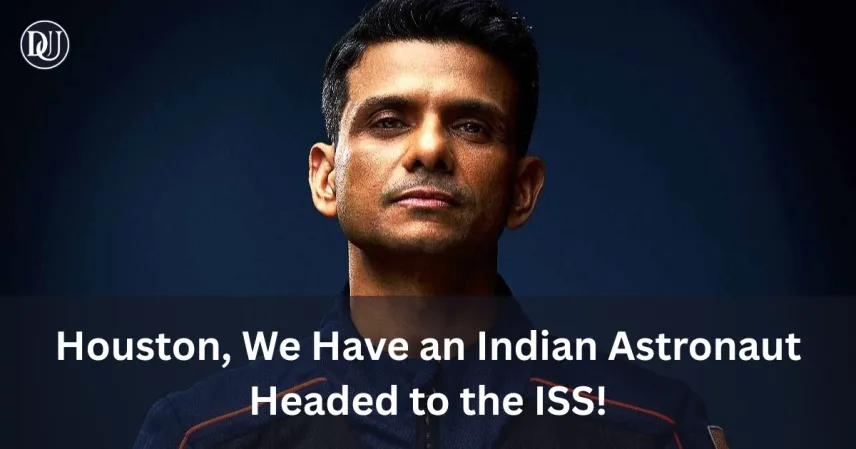Space fans, buckle up! We’ve got some absolutely stellar news that’s going to make you feel all kinds of proud. An Indian astronaut, Shubhanshu Shukla, is set to board the International Space Station (ISS) as part of Axiom’s Ax-4 mission. How cool is that?! It's not every day you hear about an Indian joining an ISS mission, and honestly, this just feels like a giant leap forward for India's presence in space exploration. You know, it reminds you that the sky isn't the limit, it's just the view. Let's dive into what this groundbreaking mission means.
Here's What's Really Going On: India's Growing Space Dreams
This isn't just a casual trip to space; it's a huge moment. Shubhanshu Shukla, being part of the Ax-4 mission, signifies a growing collaboration in the global space community. Axiom Space, for those who don't know, is a private company that's really shaking things up in the space industry, offering commercial missions to the ISS. This got me thinking... it's like space travel is becoming more accessible, even if it's still for the super-elite.
Here's why this is such a big deal:
- Indian Representation: Having an Indian astronaut on the ISS is a testament to India's burgeoning space capabilities and its commitment to international cooperation in space. We're seeing more and more Indian talent reaching for the stars, literally!
- Axiom's Role: Axiom Space's Ax-4 mission is a commercial venture, which highlights the expanding private sector involvement in space travel. This is a game-changer, opening up new avenues for missions and research beyond traditional government-led programs.
- ISS Research: Astronauts on the ISS conduct vital scientific research that benefits life on Earth. Shukla's presence will contribute to this global effort, potentially bringing unique perspectives and experiments from India.
Speaking of which, it's pretty incredible to think about the rigorous training these astronauts go through. It's not just about being smart; it's about physical and mental endurance, adaptability, and teamwork. You'll probably find this odd too, but every time I hear about these missions, I picture the astronauts floating weightlessly, looking down at Earth. What does this mean for us? It reinforces the idea that human ingenuity and collaboration can overcome incredible challenges.
What This Actually Means for India's Space Future
This mission isn't just about one astronaut; it's a huge win for India's space program, ISRO (Indian Space Research Organisation), and its future ambitions. Think about it: a seat on the ISS, even through a private mission, provides invaluable experience and insight into long-duration spaceflight and station operations. This knowledge can be directly applied to India's own human spaceflight program, Gaganyaan.
For young, aspiring scientists and engineers in India, this is incredibly inspiring. It shows that dreams of space aren't just for Hollywood movies; they're becoming a tangible reality for Indians. It's like a beacon of hope, encouraging more people to pursue careers in STEM. Let's be honest, seeing one of 'us' up there makes it feel a lot more real and achievable. It fuels national pride and reinforces India's position as a significant player in the global space arena. Makes sense, right?
Bottom Line: India Reaching for the Stars, Literally!
The news of Indian astronaut Shubhanshu Shukla boarding the ISS via Axiom's Ax-4 mission is truly monumental. It underscores the exciting progress in space exploration, both globally and for India specifically. This collaboration with Axiom Space is a testament to India's growing capabilities and its aspirations in human spaceflight. We're witnessing history in the making. What do you think this means for the future of international space cooperation?










